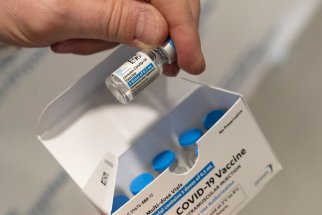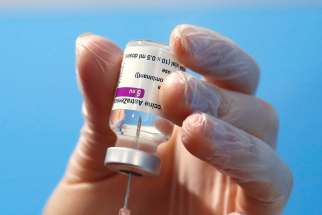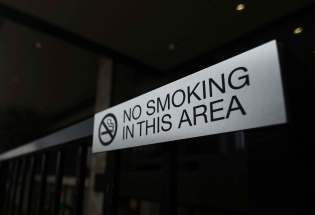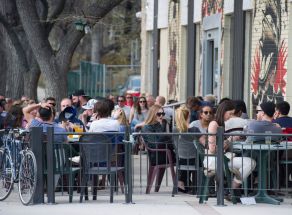Ethnic data should inform vaccine rollout
Read this article for free:
or
Already have an account? Log in here »
To continue reading, please subscribe:
Monthly Digital Subscription
$0 for the first 4 weeks*
- Enjoy unlimited reading on winnipegfreepress.com
- Read the E-Edition, our digital replica newspaper
- Access News Break, our award-winning app
- Play interactive puzzles
*No charge for 4 weeks then price increases to the regular rate of $19.00 plus GST every four weeks. Offer available to new and qualified returning subscribers only. Cancel any time.
Monthly Digital Subscription
$4.75/week*
- Enjoy unlimited reading on winnipegfreepress.com
- Read the E-Edition, our digital replica newspaper
- Access News Break, our award-winning app
- Play interactive puzzles
*Billed as $19 plus GST every four weeks. Cancel any time.
To continue reading, please subscribe:
Add Free Press access to your Brandon Sun subscription for only an additional
$1 for the first 4 weeks*
*Your next subscription payment will increase by $1.00 and you will be charged $16.99 plus GST for four weeks. After four weeks, your payment will increase to $23.99 plus GST every four weeks.
Read unlimited articles for free today:
or
Already have an account? Log in here »
Hey there, time traveller!
This article was published 05/03/2021 (1740 days ago), so information in it may no longer be current.
Case counts, test positivity rates, death tolls and vaccine doses — numbers seem to rule everything in our pandemic world, yet some figures appear to carry more weight than others.
Earlier this week, the province released a long-awaited report on the impact COVID-19 is having on racialized communities in Manitoba. Health-care workers in May 2020 started collecting data on the race, ethnicity and indigeneity of people who had tested positive for the virus, with the government proudly announcing, at the time, that this was the first jurisdiction in Canada to do so.
In Manitoba, Filipino, African and South Asian residents bear brunt of COVID-19 infection rates
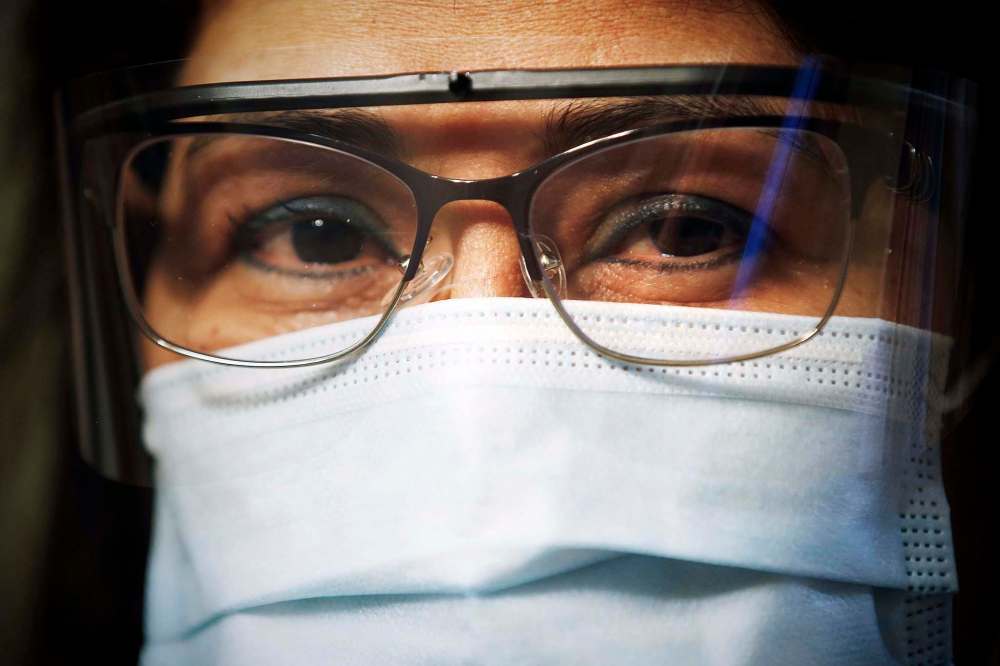
Posted:
For the past 15 years, Mely Dela Cruz has been looking after seniors in their homes, and she didn't stop when COVID-19 started to spread.
Yet it took 10 months for that data to be released publicly, and officials seem to have done little with the information during that time.
The report shows Black, Indigenous and people of colour (BIPOC) have been disproportionately affected by the virus. Racialized people represent 51 per cent of COVID-19 infections, while making up only 35 per cent of the province’s total population. African, Indigenous, Filipino and South Asian residents in particular are over-represented in the data.
The results, sadly, are not surprising. From the United States to the United Kingdom, BIPOC communities have been hit hardest by the virus and have suffered worse outcomes and more deaths than white populations. The culprit, one must reasonably conclude, is systemic racism.
The Manitoba report is upfront about this, naming systemic racism as the root cause of the disparity and providing ample context for the claim. Racialized residents are more likely to work in front-line industries, live in overcrowded or inadequate housing and suffer underlying medical conditions as a result of poor access to health and social services — all of which increase the risk of exposure to COVID-19.
The correlation between systemic racism and poor health is not new. Winnipeggers in low-income neighbourhoods have long been more likely to die prematurely and be diagnosed with a chronic disease than those in higher-income neighbourhoods, according to a 2019 assessment of community health. The gaps that already existed have become chasms during the pandemic.
So, how is the government planning to use the data it has collected to improve health outcomes for BIPOC Manitobans? By collecting more data, making health information available in more languages, and community outreach, explained chief public health officer Dr. Brent Roussin during last Monday’s media briefing. None of these addresses the aforementioned factors contributing to health inequality.

If the government is unable or unwilling to directly deal with the effects of systemic racism during the pandemic, other than making mention of them in a 10-page report, the least it can do is update the vaccine eligibility criteria to include at-risk BIPOC communities.
If a segment of the population is experiencing more cases of COVID-19, vaccinating that population should be a priority. This is already happening with older Manitobans and First Nations groups (although Inuit and Métis residents are not yet included), who are first in line for immunization.
Decisions about who to vaccinate first are based on risk factors determined by the best available data. It’s curious, then, that the province isn’t using the data it has been collecting for nearly a year on the disparate impact of COVID-19 on racialized communities to inform and improve its vaccine rollout plan.
Unless it isn’t curious at all, and it’s another example of systemic racism at play. If that’s the case, Manitobans deserve better.


